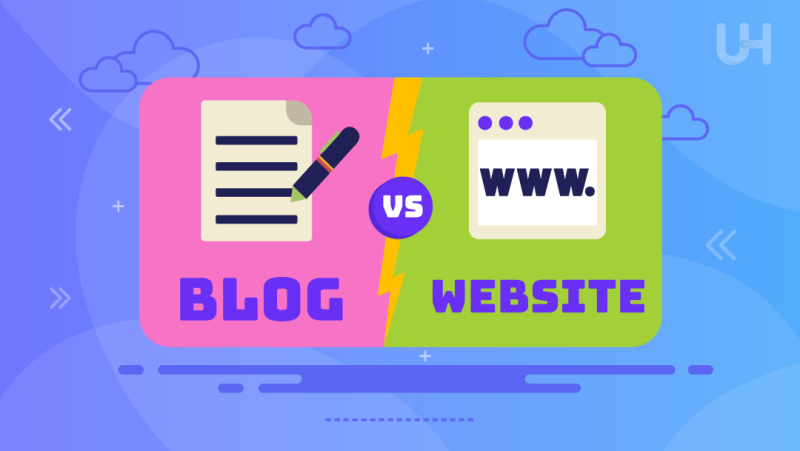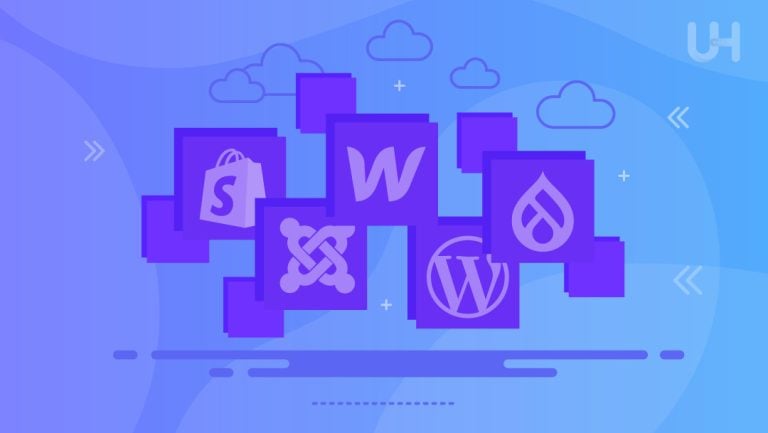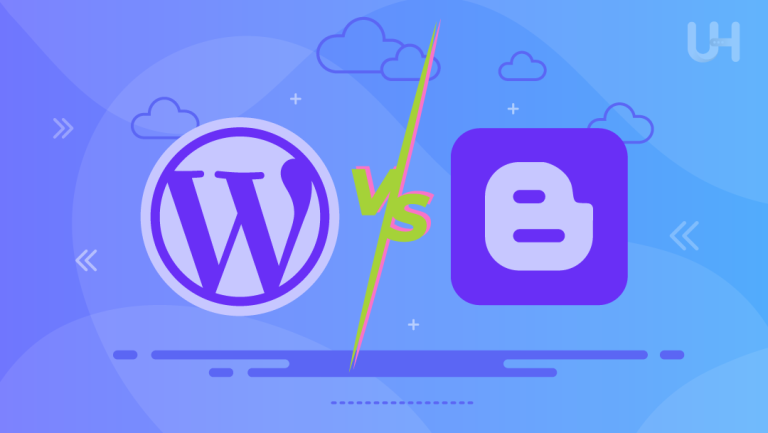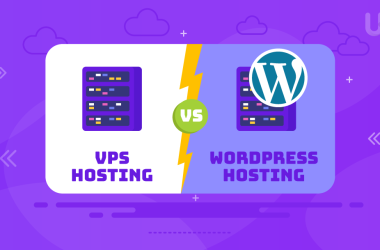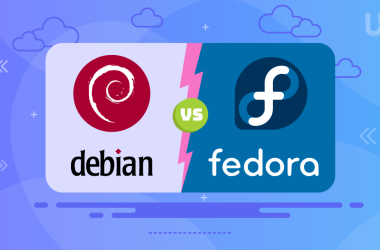Whether you’re an individual starting a personal blog or a professional website for business, your online journey begins with a crucial decision: Should you launch a blog or a website? While these terms are often used interchangeably, they serve distinct purposes and offer unique advantages. Understanding these differences between the Blog vs Website is key to making the right decision for your goals.
In this guide, we’ll discuss what sets blogs and websites apart, weigh their pros and cons, and help you choose the best option to suit your needs. Let’s explore how you can make your mark online!
What is a Blog?
A blog is an online journal or informational site that displays content in reverse chronological order, with the latest posts appearing first. Blogs are typically updated regularly and focus on a specific topic or niche. They are often personal and allow the author to share their opinions, experiences, and expertise. Interaction is a key component, as readers can leave comments and engage in discussions. Popular examples of blogs include personal travel blogs, tech news blogs, and photography blogs.
Key Features of Blog
- Chronological Posts: Content is organized by date, with the newest posts appearing first. This structure makes it easy for readers to stay updated with the latest entries and follow the blog’s progression over time.
- Regular Updates: Blogs are frequently updated with new posts. Regular content updates keep readers engaged and encourage them to return for fresh insights and information.
- Personal or Niche Focus: Blogs often reflect the author’s personal interests or expertise in a specific area. This focus allows bloggers to build a dedicated audience interested in their unique perspective and specialized content.
- Reader Interaction: Blogs typically allow for comments, fostering interaction between the author and readers. This feature encourages discussion, feedback, and a sense of community among followers.
- Multimedia Content: Blogs can incorporate various forms of media, such as images, videos, infographics, and podcasts, to enhance content and engage readers more effectively.
- Tagging and Categorization: Posts can be organized using tags and categories, making it easier for readers to find related content. This feature improves navigation and user experience on the blog.
- Subscription Options: Many blogs offer subscription options, allowing readers to receive updates via email or RSS feeds. This keeps the audience informed about new posts and encourages regular readership.
- Social Media Integration: Blogs often integrate social media sharing buttons, enabling readers to easily share posts on platforms like Facebook, Twitter, and LinkedIn. This feature helps increase the blog’s reach and visibility.
Ready to Start Your Blog?
Creating a blog is a fantastic way to share your thoughts, build an audience, and enhance your online presence. Whether you’re a hobbyist or looking to establish a professional blog, having a reliable blog hosting service is crucial.
What is a Website?
A website is a collection of web pages that are usually static and provide comprehensive information about a business, organization, or individual. Websites are designed to be more professional and are often used to promote products, and services, or provide detailed information. Moreover, they typically include a homepage, about us page, contact page, and various other sections depending on the site’s purpose. Examples of websites include corporate sites with enterprise hosting from Ultahost, e-commerce stores with eCommerce website hosting, and portfolio sites.
Key Features of Website
- Static Pages: Websites have static content that is updated less frequently. This type of content typically includes pages such as About Us, Services, and Contact Information, providing essential information that doesn’t change often.
- Professional Focus: Websites are designed to present a professional image and provide detailed information. This makes them ideal for businesses, organizations, and professionals looking to establish credibility and trust with their audience.
- Diverse Content: Websites can include various types of content, such as text, images, videos, and interactive elements. This versatility allows for a comprehensive presentation of information, products, and services.
- Search Functionality: Many websites include a search bar, allowing visitors to quickly locate specific information or pages within the site. This feature enhances usability, especially for larger websites with extensive content.
- E-commerce Capabilities: Websites can incorporate e-commerce functionalities, such as setting up an online store, shopping carts, and secure payment gateways. This allows businesses to sell products and services directly from their website.
- Responsive Design: Modern websites are designed to be responsive, meaning they adjust seamlessly to different screen sizes and devices. This ensures a consistent and user-friendly experience across desktops, tablets, and smartphones.
- SEO Optimization: Websites can be optimized for search engines through various techniques, such as keyword integration, meta tags, and quality content. This helps improve the site’s visibility and ranking on search engine results pages.
- Security Features: Websites often include robust security measures, such as SSL certificates, web application firewalls, and regular updates, to protect user data and maintain the integrity of the site.
- Analytics and Tracking: Websites can integrate analytics tools like Google Analytics to track visitor behavior, traffic sources, and other key metrics. This data helps site owners understand their audience and refine their strategies.
Key Differences Between a Blog and a Website
Blog vs Website: Content Structure
Blog content is organized chronologically, with the newest posts appearing first. This format helps readers easily find the latest updates and follow the flow of ongoing topics. Blogs often include categories and tags to organize posts by topic, making it easier for readers to navigate and find related content. Moreover, this tagging system helps with both user experience and search engine optimization.
Website content is typically organized into static pages that are updated less frequently. These pages provide essential information in a structured manner, such as landing pages, About Us, Services, and Contact Us. Websites use a hierarchical structure, with main pages and subpages, to present information in a clear and navigable way. This helps visitors quickly find the information they need.
Blog vs Website: Purpose and Use
Blogs are often used for sharing personal thoughts, updates, and experiences. They provide a platform for individuals to express themselves and connect with like-minded readers. Blogs can focus on specific topics or niches, such as travel, technology, health, or fashion. This focus allows bloggers to build an audience interested in their expertise and insights. Blogs are designed to engage readers and encourage interaction through comments, discussions, and social media shares.
Websites are used to provide detailed information about a business, organization, or professional service. They help establish a professional online presence and convey credibility. Websites offer comprehensive and static information, such as company history, product descriptions, service details, and contact information. This helps visitors understand the organization and what it offers. Websites often include features for delivering services, such as e-commerce functionality, booking systems, or online forms.
Blog vs Website: Interactivity
Blogs encourage high levels of interaction through comments, allowing readers to engage directly with the author and other readers. This fosters a sense of community and ongoing conversation. Additionally, blogs often integrate social media sharing buttons, making it easy for readers to share posts on platforms like Facebook, Twitter, and LinkedIn. This helps increase visibility and reach.
Websites generally have limited interaction, focusing more on delivering information or services. While they may include features like contact forms or live chat, the primary goal is to inform rather than engage. Websites may include transactional features, such as e-commerce platforms or booking systems, which facilitate specific actions but do not necessarily encourage ongoing interaction.
Blog vs Website: SEO and Traffic Generation
Regularly updated content on blogs helps improve search engine rankings. Search engines favor fresh and relevant content, which can attract repeat visitors and boost SEO. Blogs often target specific keywords and topics, helping them rank higher for those search terms and attract a targeted audience. Furthermore, high-quality blog posts can attract backlinks from other websites and shares on social media, further enhancing SEO and traffic.
Websites rely on evergreen content, which remains relevant over time, to maintain SEO. The focus is on providing comprehensive and static information that doesn’t need frequent updates. A well-designed website with optimized content can maintain a strong search engine presence. Although updates are less frequent, ensuring the content is high-quality and relevant is crucial for SEO. Additionally, websites for businesses can leverage local SEO strategies to attract visitors from specific geographic areas, using techniques like Google My Business listings and location-based keywords.
Blog vs Website: Design and User Experience
Blogs often have a dynamic and ever-changing design, with new posts and updates regularly featured on the homepage. This keeps the site looking fresh and engaging. With categories, tags, and a chronological structure, blogs are designed to be easy to navigate, helping readers find content that interests them quickly.
Websites typically have a more consistent and static design, with a focus on creating a professional and polished appearance. Moreover, the layout is usually straightforward, aiding in easy navigation. Websites use clear and structured menus to help users find the information they need. This structured approach ensures a smooth user experience.
Blog vs Website: Content Management
Content Management Systems (CMS) play a crucial role in how blogs and websites are created, managed, and maintained. Understanding the different CMS options available for blogs and websites can help you choose the right platform for your needs.
CMS for Blogs
- WordPress: WordPress is the most popular CMS for blogging, powering over 40% of all websites on the internet. It offers a user-friendly interface, thousands of customizable themes, and a vast library of plugins that extend its functionality. With WordPress, bloggers can easily manage content, schedule posts, and optimize their sites for SEO.
- Blogger: Blogger is a free blogging platform by Google. It is ideal for beginners due to its simplicity and integration with other Google services. While it lacks the extensive customization options of WordPress, Blogger provides a straightforward interface for creating and publishing blog posts quickly.
- Medium: Medium is a CMS that focuses on writing and content sharing. It offers a clean, distraction-free writing environment and a built-in audience. Medium is a good choice for bloggers who want to focus on content creation without worrying about the technical aspects of maintaining a blog.
CMS for Websites
- WordPress: WordPress is not only popular for blogs but also for creating websites. Its flexibility allows users to build anything from simple blogs to complex websites. With a wide range of themes and plugins, WordPress can be customized to suit various types of websites, including e-commerce, portfolios, and business sites.
- Wix: Wix is a cloud-based website builder that offers an intuitive drag-and-drop interface. It provides a variety of templates and design elements, making it easy for users to create visually appealing websites without any coding knowledge. Wix also includes features for e-commerce, SEO, and mobile optimization.
- Squarespace: Squarespace is known for its sleek, professional design templates. It is a popular choice for creatives, such as artists, photographers, and designers, due to its emphasis on aesthetics. Moreover, squarespace includes built-in tools for e-commerce, blogging, and analytics, making it a versatile option for various website needs.
Understanding these key differences will help you choose the right platform for your needs, whether you’re aiming to engage an audience with a blog or present professional information through a website.
Launch Your Blog or Website with Reliable Hosting!
Whether you’re starting a blog or creating a professional website, choosing the right hosting service is crucial. Take the Next Step! Discover the benefits of UltaHost WordPress Hosting for a secure, fast, and scalable solution tailored to your needs.
Blog vs Website: Pros and Cons
Pros of Blog
- Engages Audience: Blogs engage readers with regular updates and interactive features like comments, which foster a sense of connection and community. Moreover, the chronological nature of blog posts keeps content fresh and encourages repeat visits.
- Boosts SEO: Frequent updates and fresh content can significantly improve search engine rankings. Blogs often focus on specific keywords and topics, which can help attract targeted traffic and improve your site’s visibility on search engines.
- Easy Updates: Blogs are typically easier to update and manage than websites. Content management systems (CMS) like WordPress, Blogger, and Medium provide user-friendly interfaces that make it simple to create and publish new posts.
- Encourages Community Interaction: Blogs foster a sense of community and interaction through comments and social media shares. Readers can engage with the content, share their thoughts, and connect with the author and other readers, creating a dynamic and interactive environment.
- Showcases Expertise: Blogs allow authors to share their knowledge and expertise on specific topics, establishing them as thought leaders in their field. Moreover, this can attract a dedicated audience interested in their insights and opinions.
- Monetization Opportunities: Blogs offer various monetization opportunities, such as affiliate marketing, sponsored posts, and advertising. By creating valuable content, you can attract partnerships and generate revenue from your blog.
Cons of Blog
- Requires Regular Updates: Maintaining a blog requires consistent effort to keep content fresh. Readers expect regular posts, and failing to update frequently can lead to a loss of interest and engagement.
- Time-Consuming: Creating high-quality blog content can be time-consuming. Researching topics, writing posts, editing, and promoting content all require significant time and effort.
- Potential for Lower Professionalism: Blogs can sometimes appear less professional than static websites, depending on the design and content. Moreover, an overly casual or unpolished blog might not convey the level of professionalism desired by some businesses or individuals.
- Content Overload: With the sheer volume of blogs available, standing out can be challenging. Creating unique, valuable content that attracts and retains readers requires creativity and strategic planning.
Pros of Website
- Professional Appearance: Websites can present a polished, professional image. A well-designed website with a clean layout, professional graphics, and cohesive branding can significantly enhance your credibility and trustworthiness.
- Versatile: Websites can include various types of content and serve multiple purposes. They can host static pages, dynamic content, multimedia elements, e-commerce features, and more, making them adaptable to different needs.
- Comprehensive Information: Websites can provide detailed, static information that is easy to navigate. Visitors can quickly find essential information about your business, services, products, or personal background without sifting through a blog’s chronological posts.
- Easier Maintenance: Once set up, websites require less frequent updates than blogs. Static content doesn’t need constant refreshing, reducing the time and effort needed for maintenance.
- Structured Navigation: Websites offer structured navigation, making it easier for visitors to find specific information. Moreover, clear menus and organized content improve the user experience and help visitors access the information they need quickly.
- Greater Control Over Design: Websites offer greater flexibility and control over design and layout. Customizable templates and design options allow you to create a unique and visually appealing online presence that reflects your brand identity.
Cons of Website
- Can Appear Static: Without regular updates, websites can appear static and outdated. Stale content can negatively impact user experience and search engine rankings, making it important to periodically refresh the site.
- Less Engagement: Websites typically offer fewer opportunities for reader interaction and engagement. While they can include contact forms and social media links, they don’t usually facilitate the same level of interaction as blogs.
- Higher Initial Effort: Designing and developing a website can require more upfront effort and resources. Creating a professional, functional website often involves hiring designers, developers, and content creators, which can be costly and time-consuming.
- SEO Challenges: Websites with static content may face challenges in achieving high search engine rankings. Without regular content updates, it can be harder to maintain a strong SEO presence compared to blogs that frequently publish new posts.
- Maintenance and Updates: While websites generally require less frequent updates, keeping them secure and functional still requires regular maintenance. This includes updating software, ensuring compatibility with new devices and browsers, and protecting against security threats.
- Cost: Building and maintaining a professional website can be expensive. Costs may include domain registration, hosting, design and development services, and ongoing maintenance, which can add up over time.
When to Choose a Blog or a Website

Choosing between a blog and a website depends on several factors, including your goals, content strategy, and how you plan to engage with your audience. Here, we will discuss these factors in more detail to help you make an informed decision.
Consider Your Goals
- Personal Branding: If your primary objective is to build a personal brand by sharing your experiences, thoughts, and expertise in a particular niche, a blog is an excellent choice. Blogs provide a platform for continuous engagement with your audience through regular posts. For instance, if you’re a travel enthusiast, a blog allows you to share your travel experiences, tips, and photos regularly, helping you build a loyal following. Moreover, the personal touch of blogs can create a strong connection with readers, fostering a sense of community and loyalty.
- Business Presence: For businesses, a website is essential for showcasing products or services, providing detailed information about the company, and establishing a professional online presence. Websites are designed to present information in a structured and easily navigable way, making it simple for visitors to find what they need. For example, an e-commerce website can display product categories, detailed product descriptions, customer reviews, and secure checkout options. Furthermore, a professional website enhances credibility and trust, which are crucial for business success.
Content Strategy
- Regular Posts: If your content strategy involves frequent updates and engaging with an audience regularly, a blog is ideal. Blogs are perfect for sharing news, updates, tutorials, and opinions. Moreover, the continuous flow of new content keeps readers coming back for more and helps improve your site’s search engine ranking. For example, a tech blog that posts weekly reviews and industry news can attract tech enthusiasts who return regularly to stay updated.
- Static Information: If your content is more static and does not require frequent updates, a website is more suitable. Websites are ideal for providing essential information that doesn’t change often, such as contact details, service descriptions, company history, and portfolio showcases. For example, a law firm’s website can provide detailed information about its services, attorney profiles, case studies, and client testimonials. This type of content remains relevant over time and does not require regular updates.
Hybrid Approach
Combining the strengths of both blogs and websites, a hybrid approach offers a versatile solution that can cater to a variety of needs. By integrating a blog into your website, you can enjoy the benefits of both platforms, creating a dynamic and engaging online presence.
Benefits of a Hybrid Approach
- Enhanced SEO: Regular blog updates can improve your site’s search engine ranking by providing fresh content and targeting relevant keywords. This increases your visibility and drives more organic traffic to your website.
- Increased Engagement: A blog allows you to interact with your audience through comments, shares, and discussions. This builds a community around your brand and fosters customer loyalty.
- Comprehensive Content: Combining static pages with dynamic blog posts gives you the flexibility to present a wide range of information. You can use static pages for essential details like services, contact information, and about us sections, while your blog can cover news, updates, and educational content.
- Brand Authority: Regularly publishing high-quality blog posts on your website establishes you as an authority in your niche. It demonstrates your expertise and keeps your audience informed about industry trends and insights.
- Versatile Marketing: A hybrid approach supports various marketing strategies, from content marketing and social media promotion to email marketing campaigns. You can share blog posts across different channels to drive traffic back to your website.
Conclusion
In conclusion, the decision to choose a blog, a website, or a hybrid model should be based on your specific goals and content strategy. If you aim to share personal stories and engage regularly with an audience, a blog is the way to go. If you need a professional platform to showcase your business and provide detailed, static information, a website is more suitable.
By understanding the differences and weighing the pros and cons, you can make an informed decision that aligns with your objectives!
If you’re ready to get started, finding the right web hosting service is a crucial next step. Ultahost offers a range of reliable and affordable web hosting solutions tailored to both blogs and websites.
FAQ
What is the primary difference between a blog and a website?
A blog primarily focuses on regularly updated content in the form of posts or articles, displayed in reverse chronological order. A website, on the other hand, is a more static online presence with fixed pages like a homepage, about page, and contact page.
Can a website have a blog section?
Yes, many websites integrate a blog section to provide updates, share news, or post articles. This can enhance SEO and engage visitors with fresh content.
Which is better for SEO: a blog or a website?
Both blogs and websites can be optimized for SEO, but blogs often have an advantage due to their regularly updated content, which search engines favor. Websites need to focus on overall site optimization and quality content to rank well.
Is it possible to monetize both blogs and websites?
Yes, both blogs and websites can be monetized. Blogs can generate income through ads, sponsored posts, and affiliate marketing. Websites can earn revenue through e-commerce sales, service offerings, and advertising.
What are the benefits of integrating a blog into a website?
Integrating a blog into a website can drive more traffic, improve SEO, and engage visitors with fresh content. It also allows businesses to share industry insights, company news, and helpful information, enhancing their online presence.





